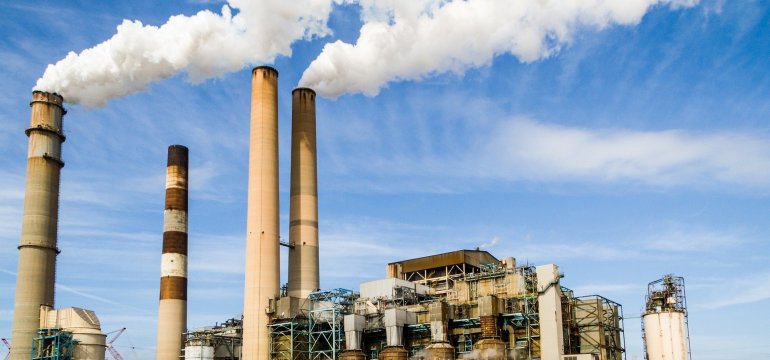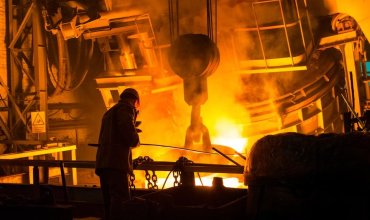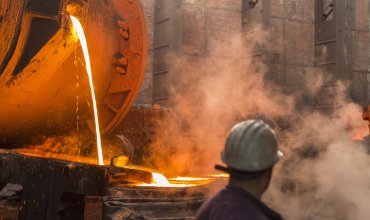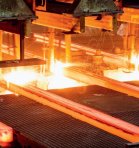The metals industry is one of the oldest and most important industrial sectors in the world. Its origins date back thousands of years, when people began to mine and process metals. In Poland, this sector has a long and rich history, and its impact on the country's economy cannot be overestimated. What does the metallurgical industry produce? We will try to answer this question in a comprehensive and detailed manner. This industry not only provides the materials necessary for construction and production, but also contributes to technological development and innovation. In the rest of the article, we will look at the specific products and processes that make up this fascinating sector.
Steel - the primary product of the metals industry
Steel is one of the most important products of the metallurgical industry. It is characterized by exceptional strength and versatility. Steel production in Poland has a long tradition and is a key factor in economic development. What does the metallurgical industry produce in the context of steel? First of all, structural steel, tool steel, stainless steel and low-alloy steel.
Structural steel
Structural steel is the material from which skyscrapers, bridges, ships and other large engineering structures are built. In Poland, structural steel is mainly produced at steel mills such as Huta Katowice and Huta Zawiercie. It is a high tensile strength steel, which makes it ideal for construction. What does the metallurgical industry produce in this segment? A wide range of beams, columns, plates and pipes.
Stainless steel
Stainless steel is another important product. It is a steel that contains at least 10.5% chromium, which prevents corrosion. Used in the manufacture of cookware, medical devices, as well as in the chemical and food industries, stainless steel is indispensable in many areas of life.
Tool steel and low-alloy steel
Tool steel, as the name suggests, is used in the manufacture of tools. It has high hardness and abrasion resistance. It is used to make drills, knives, files, etc. Low-alloy steel, on the other hand, which contains small amounts of alloying elements, is often used in the automotive industry.
Aluminum - the lightweight giant of the metals industry
Aluminum is the second most important product of the metallurgical industry in Poland. It is a lightweight metal with low density and high corrosion resistance. What does the metallurgical industry produce in terms of aluminum? The list of products could be long, but let's focus on the most important ones.
Aluminum in the automotive industry
Aluminum is widely used in the automotive industry for the production of bodies, rims, engines and other car parts. Its light weight contributes to reducing the weight of vehicles, which in turn affects fuel efficiency.
Aviation and aerospace
Due to its properties, aluminum is also widely used in the aerospace industry. Aluminum is used to manufacture aircraft support structures, rocket fuselages and various types of heat shields.
Construction and infrastructure
In the construction industry, aluminum is used to manufacture windows, doors, facades and other architectural elements. Aluminum is a durable material and easy to work with, which makes it very popular in this industry.
Copper and its applications
Copper is a metal with unique properties that make it an indispensable component of many industrial processes. In Poland, copper production is well developed, and KGHM Polska Miedz is one of the largest producers of this metal in the world.
Copper in the power industry
What does the metallurgical industry produce when it comes to copper? First of all, electrical wires and cables, which are indispensable in the power industry. Copper has excellent electrical conductivity properties, making it an ideal material for this purpose.
Electronics industry
Copper is also a key element in the electronics industry, and is used to manufacture printed circuit boards, computer components and other electronic devices. It is a metal that provides high electrical and thermal conductivity, which is irreplaceable in this industry.
Construction and plumbing
Plastic and other plastics are replacing copper in some applications, but copper pipes are still irreplaceable in plumbing and heating systems. Copper is durable, corrosion-resistant and has bacteriostatic properties, making it an ideal material for these applications.
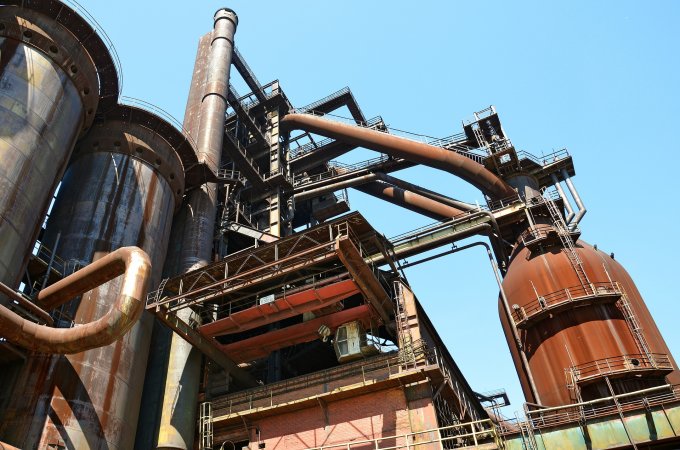
Other metals produced by the metallurgical industry
The metallurgical industry in Poland is not limited to the production of steel, aluminum and copper. It also produces a wide range of other metals that have their own specific applications.
Zinc and lead
Zinc and lead are also important products of the metallurgical industry. Zinc is mainly used to galvanize steel, which prevents corrosion. Galvanized steel is used in construction, automotive and other industries. Lead, due to its properties, is used for batteries, radiation shielding and in the chemical industry.
Nickel, chromium and manganese
These metals are key alloying elements used in the production of various types of steel. Nickel is used to produce stainless steel, which is highly resistant to corrosion. Chromium and manganese also play important roles in improving the mechanical properties of steel.
Titanium
Titanium is a metal with exceptional properties: it is lightweight but very strong, corrosion resistant and has excellent mechanical properties. It is a metal widely used in medicine for implants, in the aerospace industry and in the chemical industry for reactors and vessels.
Metal processing and recycling
Metal production is not only the mining and processing of ore, but also the processing of scrap metal and recycling. What does the metals industry produce in terms of recycling? The industry plays a key role in protecting the environment by reprocessing used metal products.
Pecycling steel
Steel is one of the most recycled materials in the world. The steel recycling process saves raw materials and energy. The metal industry in Poland also actively participates in recycling, which is both economically and environmentally beneficial.
Aluminum recycling
Aluminum is the second material that is widely recycled. The aluminum recycling process is much less energy-intensive than primary production from bauxite ore. Recycling aluminum saves a significant amount of raw materials and energy, which has a direct impact on production costs and environmental protection.
Recycling of copper and other metals
Copper, like other metals, is also widely recycled in Poland. Copper scrap is recycled into new products, saving natural resources and reducing waste. Other metals, such as zinc, lead, nickel and titanium, are also recycled, contributing to the sustainability of the metals industry.
Summary
In conclusion, what does the metals industry produce? It's a huge and extremely diverse industrial sector that supplies a wide range of products needed for various industries. From steel to aluminum, copper to more specialized metals like titanium and nickel, all of these materials are vital to the modern economy. Poland's metals industry is not only an important part of the national economy, but also plays a key role in the global context. Thanks to a developed recycling system and innovative technologies, the industry contributes to sustainable development while providing the materials necessary for further technological and economic development. Hopefully, through continuous innovation and optimization of production processes, the metal industry will continue to grow in Poland, contributing to the overall well-being of society.


